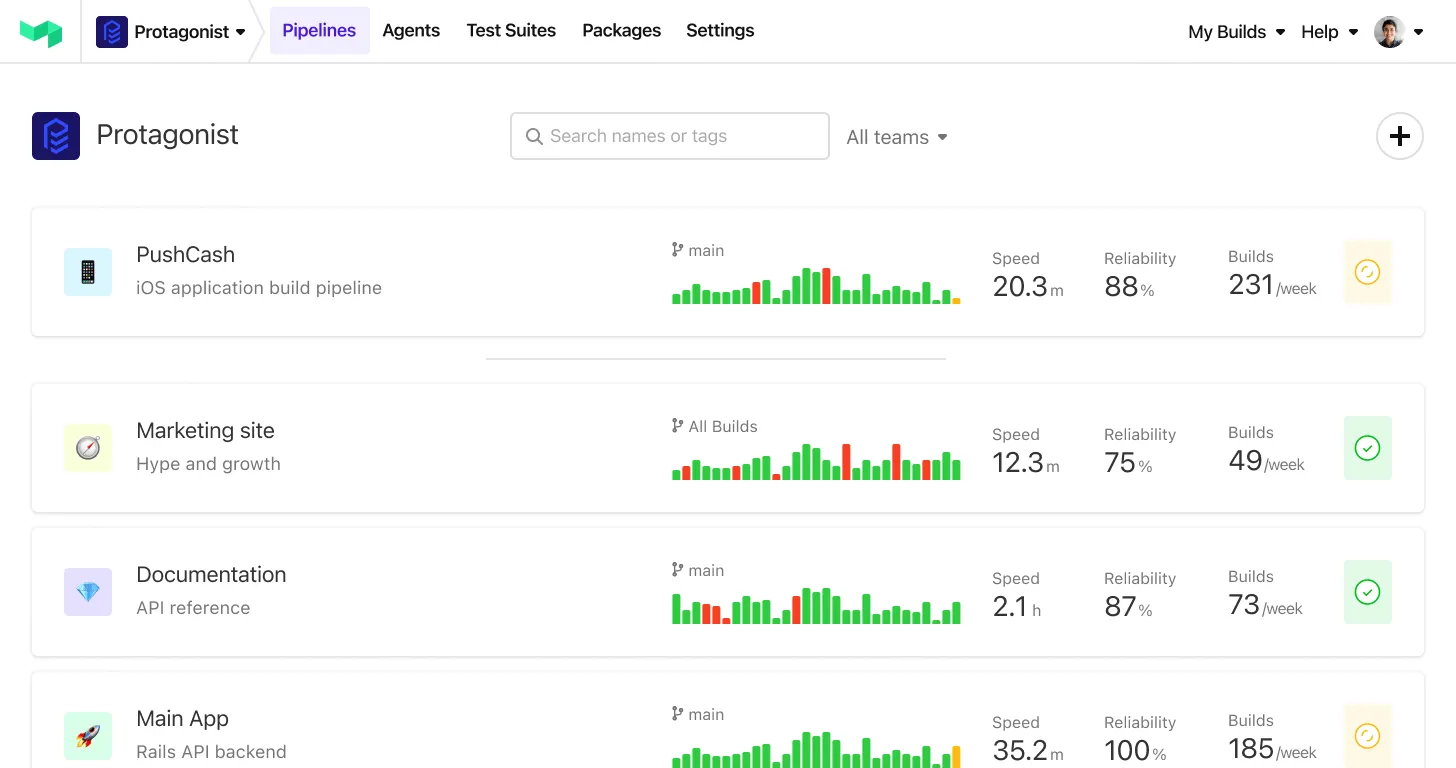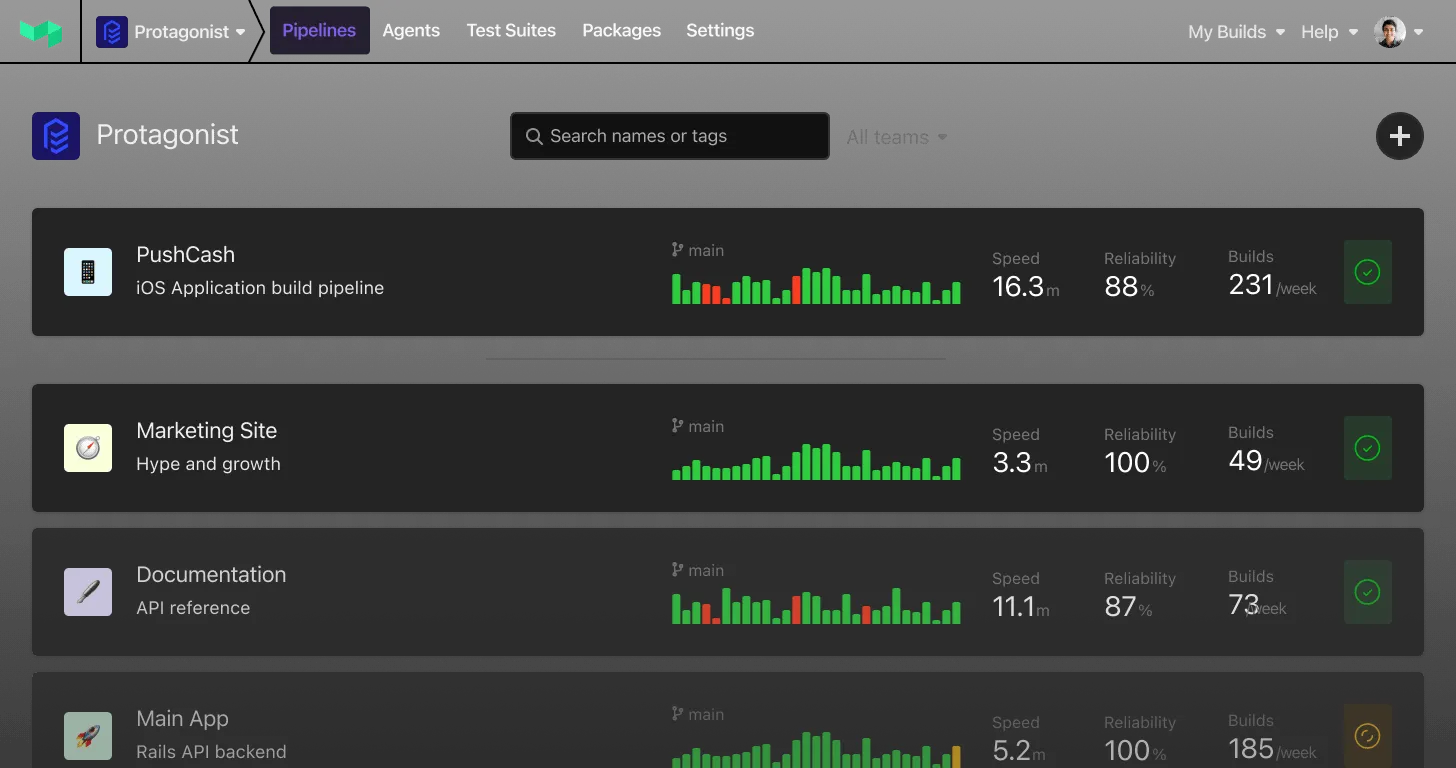Agent Tokens Removed from Buildkite UI after Creation
Effective from 24 July 2023, agent tokens in the Buildkite UI will undergo a significant modification. They will now behave similarly to API tokens, meaning that after creation, they will no longer be visible in the UI.
To ensure you have access to the complete token, it is crucial to save it immediately upon creation. This change aims to enhance the security of agent tokens within the Buildkite platform.
Please make a note of this update and adjust your workflows accordingly. If you have any questions or concerns, feel free to reach out to our support team (support@buildkite.com) for assistance.
Oz
Now available: June 2023 Release
Today we’re shipping 30+ new features to Buildkite 🚀
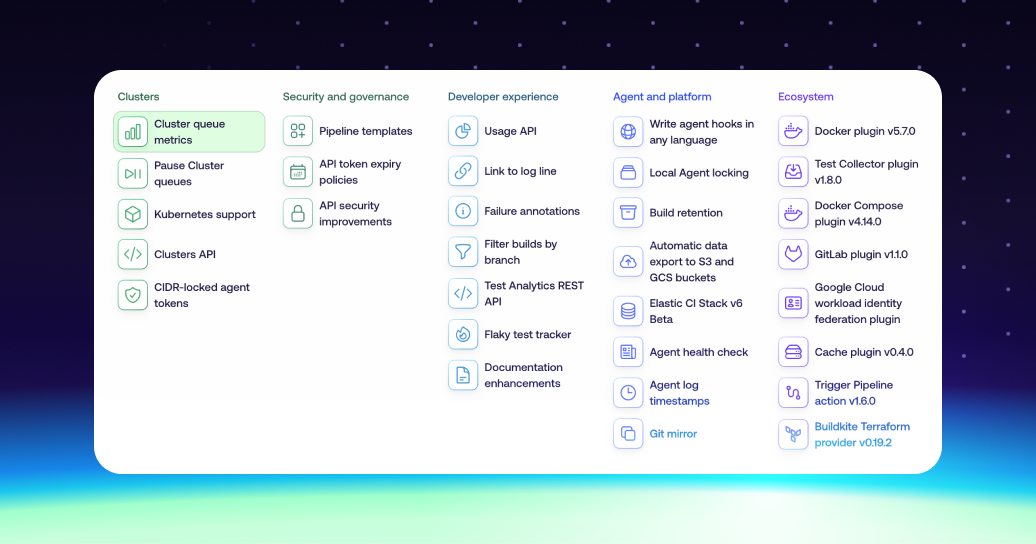
Some of the features I’m most excited about are:
- 🗂 Pipeline Templates let you have a shared set of step definitions you can use across your pipelines, and better yet, you can lock down all your pipelines in the organization to only those templates. Great for security and control at scale.
- 📈 We’ve added metrics to your cluster queues. You’ll now be able to see how many agents are connected, how many jobs are running, and what the current scheduled wait time for a job is.
- 🔨 Building upon our local Agent Job API that we shipped in the last release, Agent hooks can be written in any language, not just Bash. This allows us to work towards a future where you can write your hooks once and run them anywhere.
Check out the rest of the release here: https://buildkite.com/releases/2023-06
I'd love to hear your feedback on the release, send me an email any time: keith@buildkite.com
Keith
API token expiry policies
Security is job zero, it’s important for organizations to harden their defenses against lost or leaked credentials. Buildkite’s token expiry policy will automatically revoke tokens that are no longer in use from accessing your organizational information
Set your token expiry policy to either 30, 60, 90, 180, or 365 days. After which if a token has not been used for that period of time it will expire and no longer have access to your organization.
James
Access Token Notifications
Buildkite has implemented additional security notifications to keep your data safer.
Security notifications empower customers to promptly address any token changes made to their accounts, ensuring data security and preventing unauthorised access.
Users will now receive an email when they create or update an access token associated with their account.
James
Important Update to Terraform Provider
We're removing support for Import of agent tokens in the Terraform provider. This change coincides with the announcement in this changelog. From 4 July 2023 onwards, any resources or data-sources which are dependent on an agent token being present will likely fail to apply.
We recommend that you update your provider version to >=0.19.0. Any version below this will run a state refresh on the next Terraform operation and cause agent tokens in state to be set to nil, "". If these changes are then deployed, there is a risk that all agents in your organisation will have their tokens removed and no longer be able to connect to Buildkite.
Oz
Agent Token being Deprecated from GraphQL APIs
At Buildkite we take your security seriously, because of that starting 22 June 2023 you will not be able to retrieve agent tokens for clustered and unclustered agents through the token attribute after it has been created through GraphQL APIs.
Read more about how to create Agent Tokens
Read more about how to create Cluster Agent Tokens
Update: The date for deprecation will be delayed to 4 July 2023 due to the breaking change introduced to Buildkite terraform provider. If you are a customer using the Terraform provider, please make sure to upgrade to version 0.19.0 beforehand.
Oz
New Security settings section
We've introduced a new 🔒 Security section under Settings for all security related features.
Moving all security related controls into the same space will make them easier to find and manage.
You'll find:
- Security contact
- Permissions settings
- Pipelines permissions
- Test Analytics permissions
- API access allowlist
consolidated in this new page: https://buildkite.com/organizations/~/security
Jason
Jenkins migration guide added to the docs
We’ve added a guide in the docs to help you migrate from Jenkins to Buildkite.
The new page:
- Provides a general approach for migration.
- Explains the key differences.
- Highlights the most important considerations.
We hope it makes the migration process more straightforward and transparent.
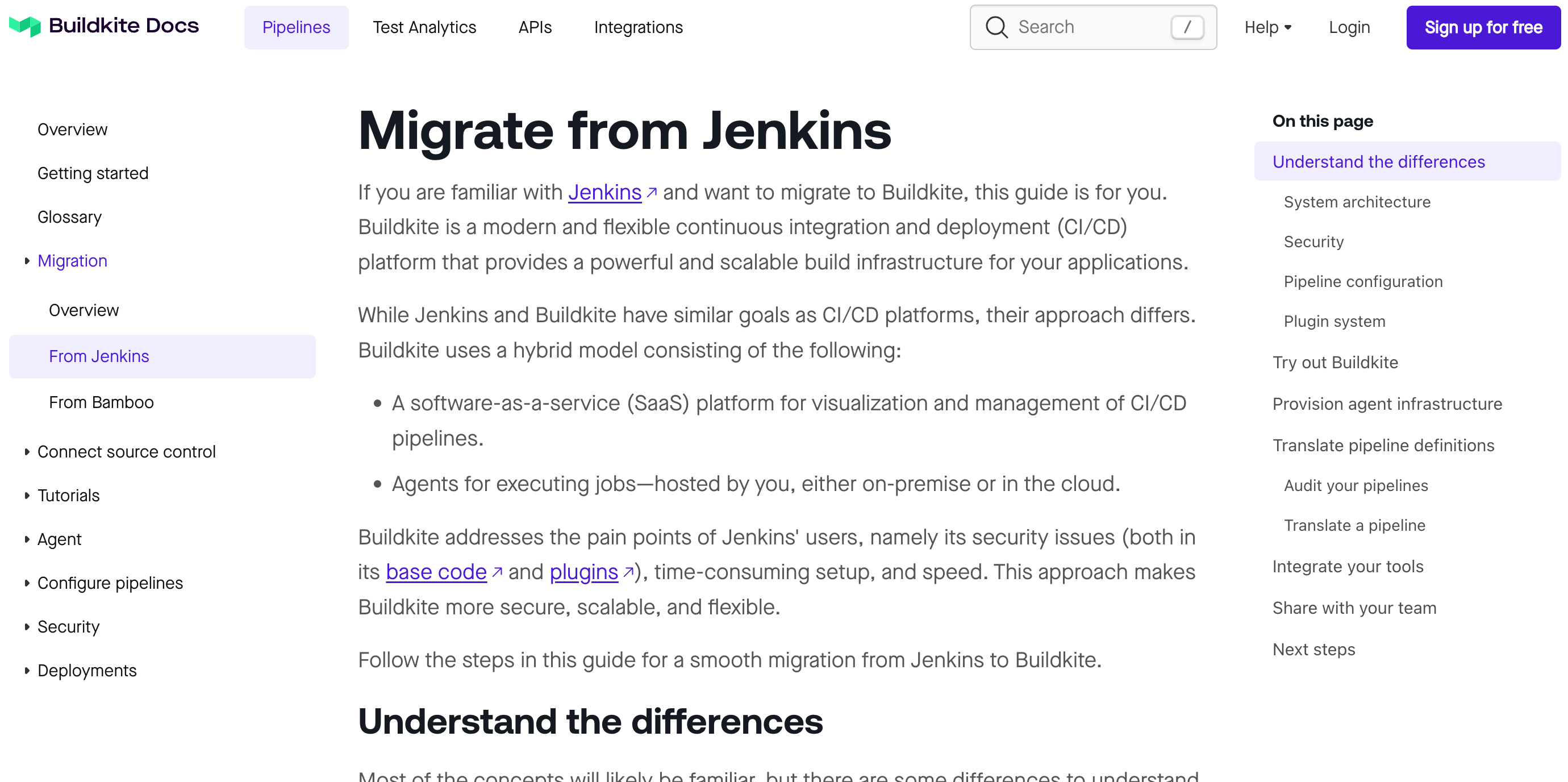
See Migrate from Jenkins to check it out. ✨
Michael
AWS Elastic CI Stack v5.19.0 release
The v5.19.0 version of the Elastic CI Stack is now avaliable. This includes a fix for an error encountered when creating a new stack from its cloudformation template due to an attempt to create an ACL for object ownership when they are now disabled by default.
For further details of the fix and what else is included in the release, see the Elastic CI Stack's release notes.
Narthana
Docs home page redesign
We've redesigned the documentation home page to make getting to the content you want easier.
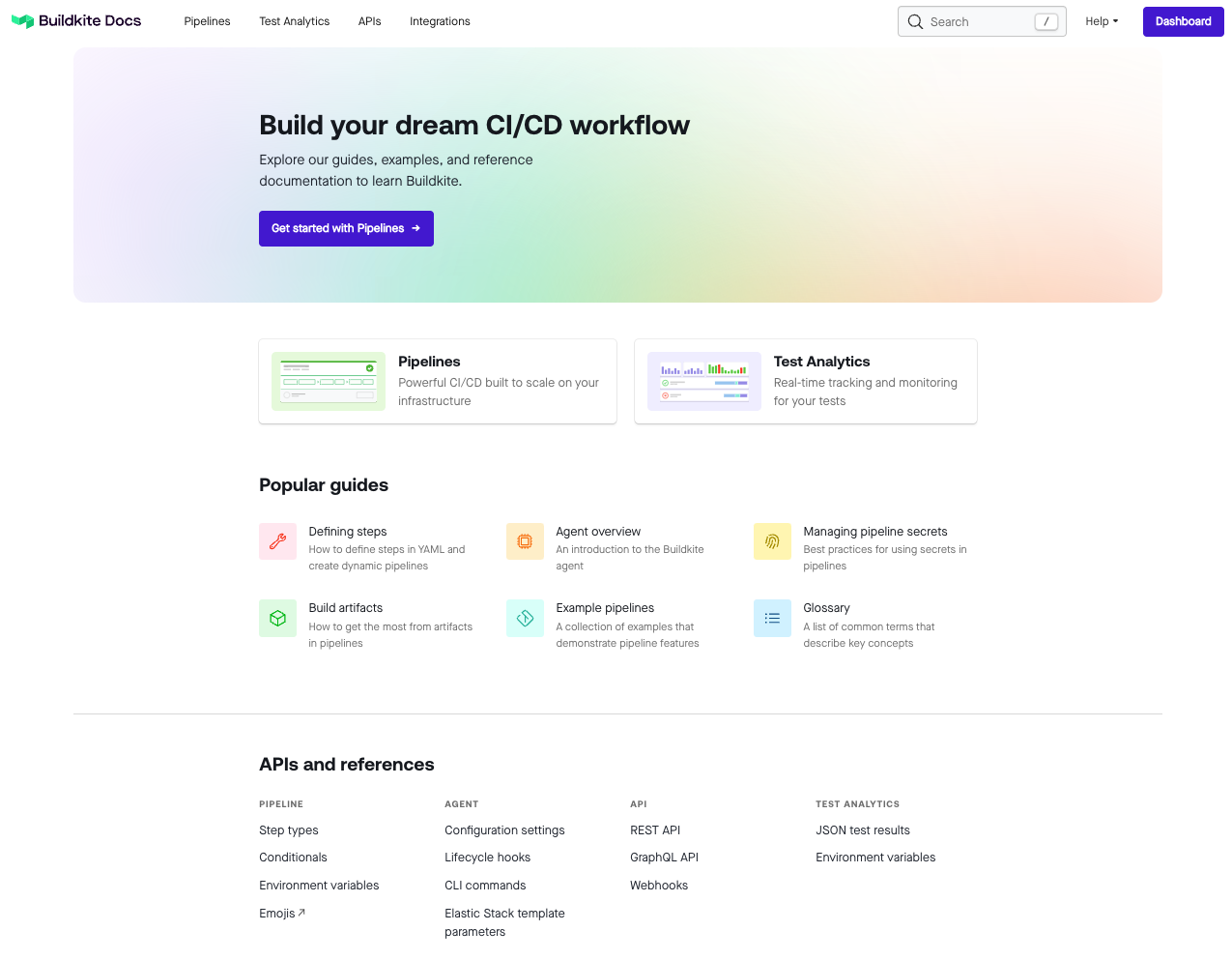
Notice:
- A clearer path to get started for new users.
- Quick access to popular content for everyone.
- Links to look up reference data for experienced users.
- A consistent global navigation to make jumping to the section you want easier.
See Buildkite docs to check it out! ✨
Michael
Elastic CI Stack for AWS docs restructure
We've restructured the documentation for the Elastic CI Stack for AWS to create clearer and more focused pages that are easier to navigate.
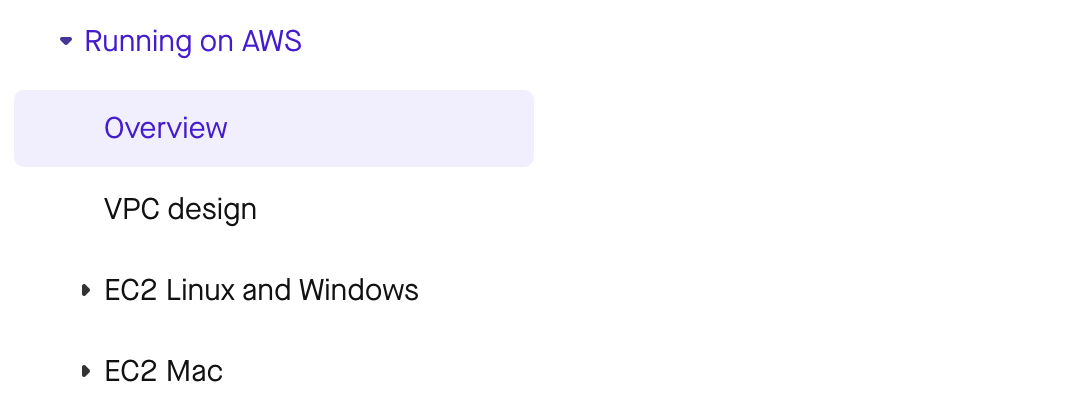
See the Overview to check out the changes. ✨
Michael
Now available: March 2023 release
We've just shipped new features that'll help uplevel your build and test workflows with Buildkite, including some key announcements:
Shaziya
Agent Stack for Kubernetes
We've released a new way to run your Buildkite jobs in Kubernetes natively. The Agent Stack for Kubernetes will allow your Kubernetes cluster to orchestrate your Buildkite Pipeline steps as Kubernetes jobs.

Narthana
Secure your organization with session IP address pinning
Prompt your users to re-authorize when their origin changes.
With session IP address pinning enabled, authorized sessions can only come from the IP address that created the session. If another IP address attempts to access the organization, the session will be immediately revoked. By pairing IP pinning with SSO session durations, we're taking a proactive approach to combating stolen session cookies.
We're committed to keeping our customers' data secure and are constantly exploring new ways to enhance our security measures.
Juanito
Clusters
Clusters allow you to organize agents into groups. These groups, or clusters, will enable the management of pipelines and queues within that cluster.
Clusters can be turned on by an admin by accessing pipeline settings in the organization settings tab. Note that once clusters is enabled, you will be unable to disable it.
Oz
OIDC support is now available
You can now request an OpenID Connect (OIDC) token from the Buildkite Agent 🔑
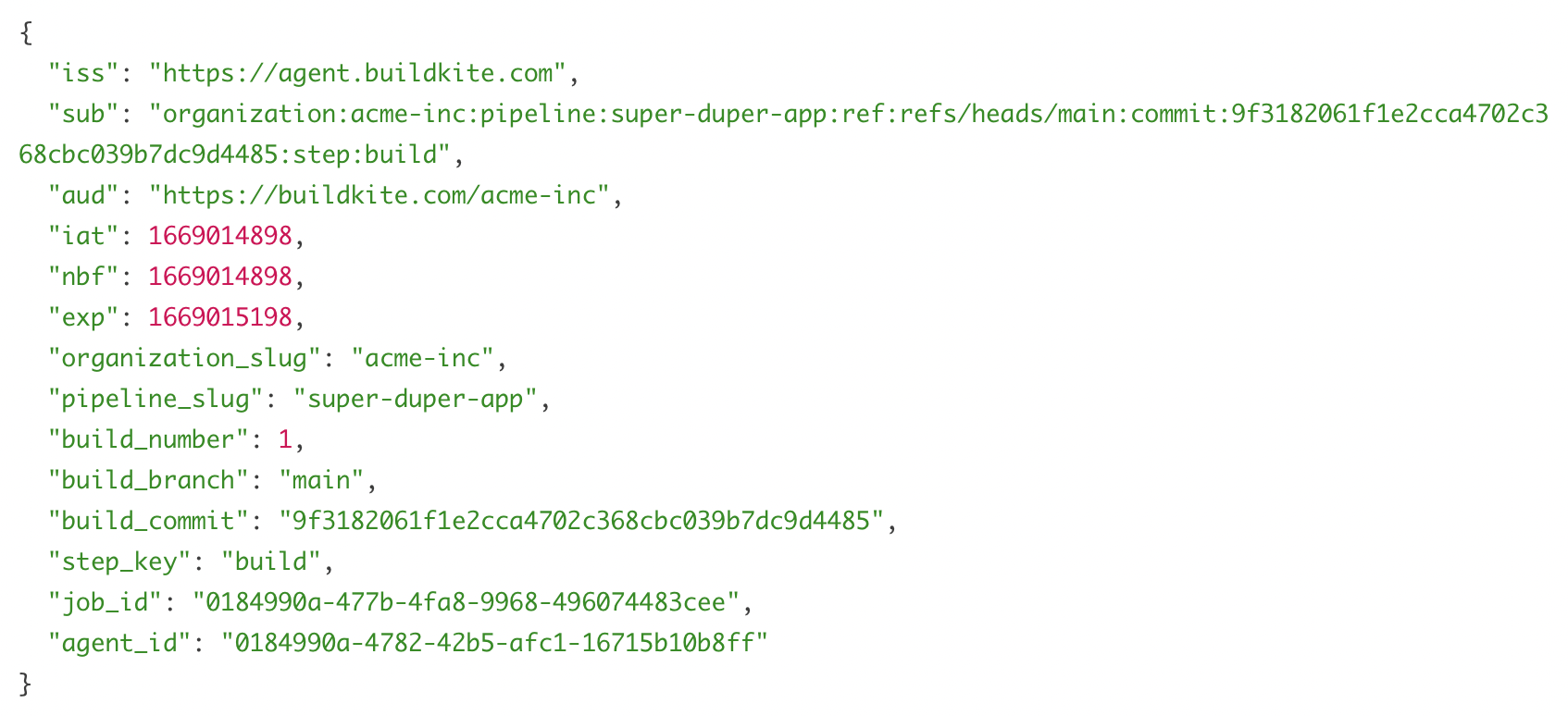
OIDC tokens are JWTs signed by Buildkite and decode into JSON which includes many attributes like the pipeline slug and the build branch. buildkite-agent oidc request-token will return a token representing the current job that can be exchanged with federated systems to authorize actions like deployments or allow access to context-sensitive information like secrets based on these attributes.
Learn more about OpenID Connect support from the Buildkite Agent
David
Export audit logs to EventBridge
Explore organization change events in your existing AWS monitoring suite.
Enterprise customers can now route Buildkite Audit Log events via the AWS Event Bridge event bus.
Himal
API access allowlist
Restrict API access to IP addresses and CIDR block ranges you trust.
You can now easily create and manage a list of IP addresses and CIDR blocks that are authorized to access your organization via the Buildkite API, improving security and reducing the risk of unauthorized access.
Learn more about configuring IP/CIDR allowlist via the UI, API, or Terraform
James
New environment variables for group steps
Jobs that belong to group steps will now have access to information about their group with three new environment variables:
BUILDKITE_GROUP_IDBUILDKITE_GROUP_KEYBUILDKITE_GROUP_LABEL
You could use these variables to upload steps to the same group, or alter the behaviour of jobs based on their group. These environment variables will be absent for jobs that do not belong to group steps.
David
Signal and signal reason in automatic retry rules
Jobs can now be automatically retried based on the signal received by the command process that caused it to exit, in addition to the job's exit code.
This is particularly useful in catching terminated agent hosts, such as you'd see when using EC2 Spot Instances:
- label: "Tests"
command: "tests.sh"
retry:
automatic:
# Catch cleanly-terminated instances
- limit: 2
signal_reason: "agent_stop"
# Catch timed-out agents
- limit: 2
exit_status: -1
signal_reason: noneDavid
Start turning complexity into an advantage
Create an account to get started for free.
